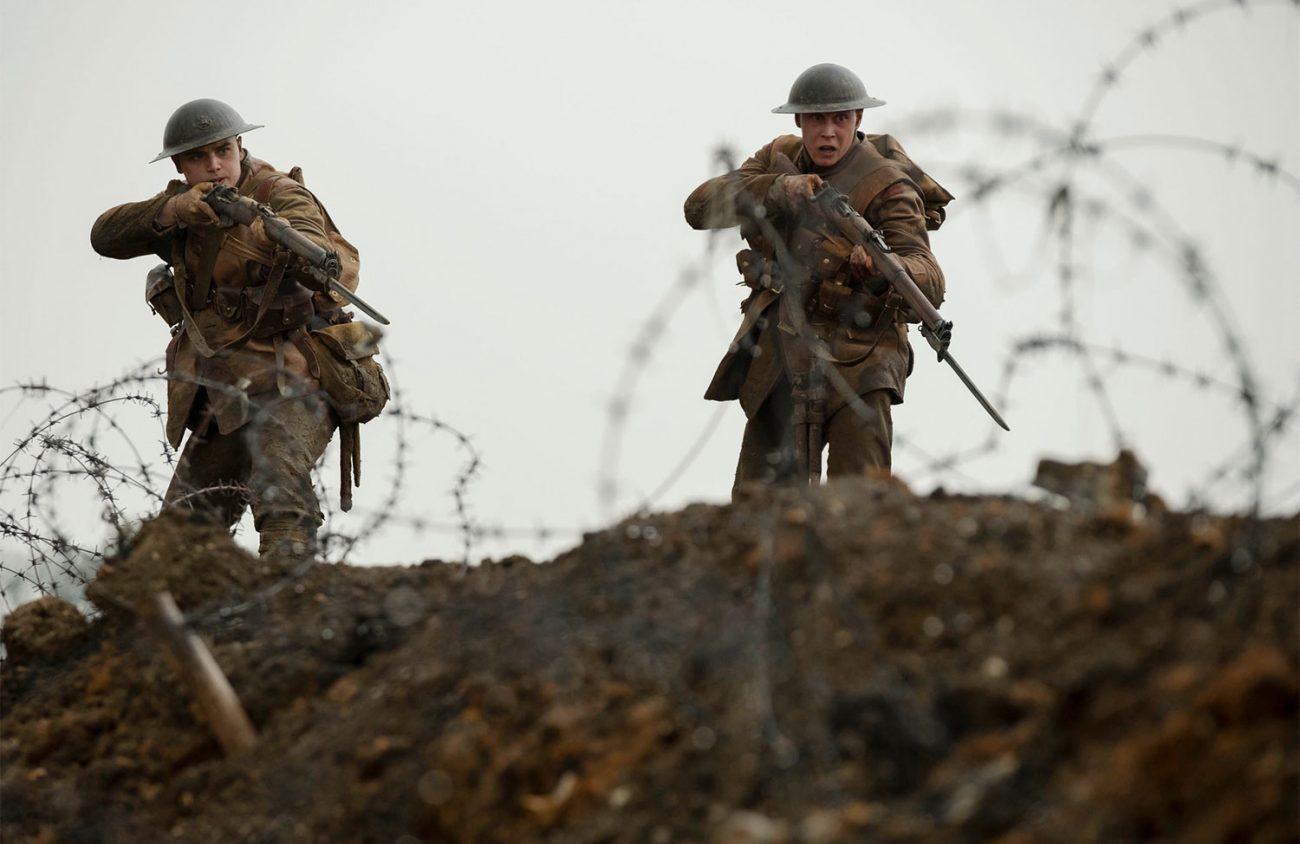Had Steven Spielberg simply cut the first and last 15 minutes from Saving Private Ryan — all that sentimentalized, emotion-yanking sacrificial nationalistic hoopla — he would have had a masterpiece on his hands. Trust the audience, Steve: Drop us straight onto the beach at Normandy, and fade to black at the death of Tom Hanks. Perfection.
But Spielberg, a great director with an unhinged addiction to low-hanging fruit, just can’t help himself. By bookending the action with quasi-theological “meaning” (nobody speaks honestly in the graveyard), he squeezes the frame too tight, turning the unreconstructed brilliance of his chaotic, heroic, nightmarish vision of World War II into a reductionist fable of American redemption, at once depoliticized and propagandistic. In forcing a “statement,” Spielberg sullies his art.
So it goes. Saving Private Ryan is still a damn fine movie, flaws and all. No such restraint, however, could have saved 1917, Sam Mendes’ much-lauded epic about a pair of British soldiers (Dean-Charles Chapman and George MacKay, who are fine) trying to stop a massacre in World War I. You can’t reach in and tinker with the guts of Mendes’ film — if only he’d done this, if he hadn’t done that — and thereby save it, because it’s a cinematic mummy, a colorized artifact that struts and frets its two hours upon the screen, signifying nothing much.
The soundtrack alone, written by the ham-fisted Thomas Newman, is enough to scuttle this film. Obtrusive, didactic and soaring in a manner that would make Wagner blush, the music in 1917 grabs you by the nose hairs, forever ensuring that you understand what’s at stake. You know, just in case you missed the point that the world’s first mass-industrial mechanized slaughter was, like, really tragic and really scary and really sad, Newman’s tonal assault is there to urge you along every plodding step of the way.
Much has been made about the technical genius of this film, and certainly the cinematography of Roger Deakins is a technical marvel, beautiful to behold. But no amount of technical brilliance can save something stillborn without a soul, and in this regard Mendes’ film is a Frankenstein monster, a reanimated corpse composed of war-movie clichés and cosmic coincidences that accumulate and burrow in such a way as to trigger the most retrograde regions of your reptilian brain.
Stop the war to wax domestic about mum’s cherry orchard back home, to make those cherry blossoms falling on bloated corpses in the last act so achingly significant. Show a German soldier a moment of mercy only to have him try to kill you, the bastard. Encounter a pretty French girl in a peasant frock sheltering alone in a bombed-out ruin, only to play the hero with, literally, the milk of human kindness. Make every connection and emotional moment so obvious that the audience doesn’t even have to connect the dots, because we are the dots, inconsequential place-holders who are required to flinch and weep at every calculated zap and zing.
Cue awards season. This one’s a shoo-in for the Oscars, which can’t resist imitation, regurgitation and the great-man theory of bunk history. This one nails all three.
1917, in the end, isn’t an anti-war movie. Mendes loves war and he loves the hell of war, all that ugliness and mud and all those bodies piled up like cordwood, and he loves it precisely for the false significance and unbearable pathos he can wring from the grisly mysticism of the Western Front — every last drop, and forget being quiet about it.
There is one significant glimmer of hope in this film — just the barest hint of what 1917 might have been. Early in the film, right before the worm turns, the two soldiers commissioned to deliver a message across German lines encounter a lieutenant in the trenches, played by Andrew Scott (the hot priest from Fleabag). His performance is riveting from the getgo, a brief flare of hard-earned wisdom and gruff fatalism that, unfortunately, works only to reveal the manufactured frippery of his cinematic surroundings.
It’s as though Scott, with his deadpan cynicism and smirking weariness, is in a different film altogether — a much better, more honest film, one that respects its audience.
